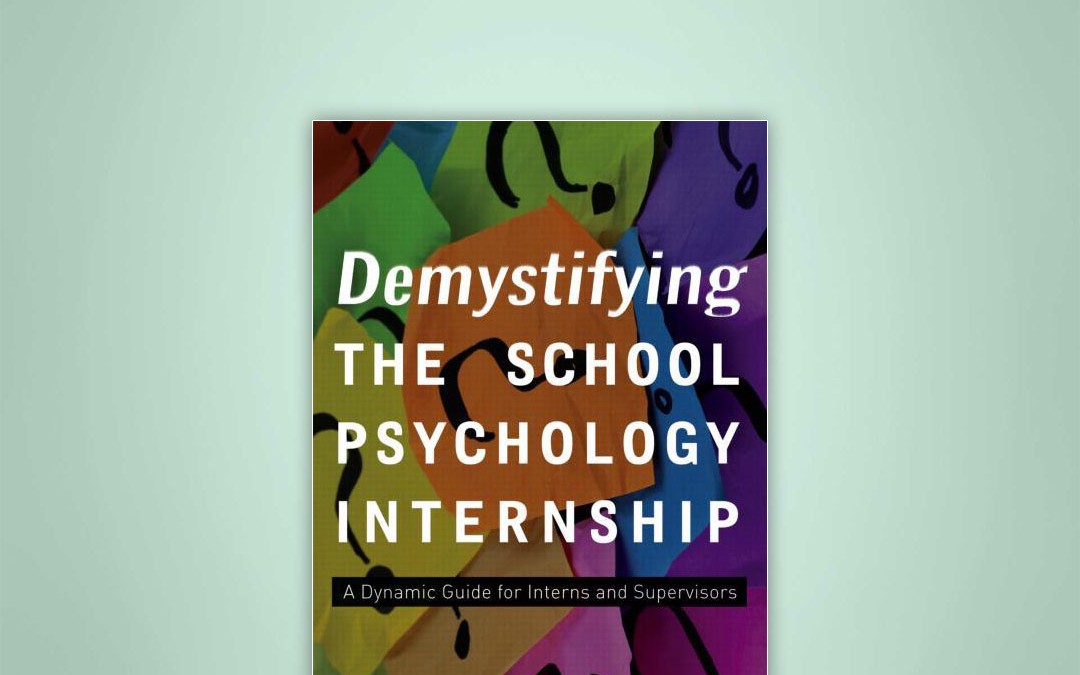Articles by Daniel S. Newman, PhD, NCSP
Daniel S. Newman, PhD, NCSP, is an Associate Professor in the School Psychology Program and Department of Human Services at the University of Cincinnati, having received his doctorate in school psychology at the University of Maryland, College Park. Dr. Newman's research, teaching, and service focus on school consultation practice and training, professional supervision, and professional issues in school psychology. He has authored articles in peer-reviewed journals, book chapters, and three books on these topics, as well as presented nationally and internationally. Dr. Newman is the Editor-Elect of the Journal of Educational and Psychological Consultation, beginning in January, 2020, and he serves on the editorial boards of School Psychology, School Psychology International (as a Qualitative Methodological Advisor), and The School Psychologist. He is also Editor of Routledge’s Consultation, Supervision, and Professional Learning in School Psychology book series. Dr. Newman co-chairs the National Association of School Psychologists Consultee-Centered Consultation Special Interest Group, the Innovations in Practica and Internships subgroup of NASP's Graduate Educators’ Committee, and he was recently elected to serve as an Executive Board Member of the Trainers of School Psychologists.

by Daniel S. Newman, PhD, NCSP | Feb 23, 2022 | The Practicalities of Training
In reflecting upon how graduate students in psychology and related disciplines may begin to view logging clinical hours as a more meaningful endeavor, I explore the features of an effective practicum or internship plan.
The post is written based on the big idea that the development of a student’s professional skills should be treated as an integrated process, not a series of isolated activities.

by Daniel S. Newman, PhD, NCSP | Jan 21, 2013 | Student & Intern Resources
This is the final blog post in a three-part series exploring topics related to graduate students’ practicum and internship experiences.
The first post focused on how students can track clinical hours in a way that is meaningful, and the second post looked at the features of an effective practicum or internship plan.
In the current post, several complexities of supervision during practicum/internship are identified, and ways to achieve clearer supervision expectations are discussed.
The post is based on the big idea that supervision is a pivotal part of practicum/internship experiences, but supervision processes need increased clarity for students and supervisors to be maximally effective. The content is adapted from my recently published book Demystifying the School Psychology Internship: A Dynamic Guide for Interns and Supervisors (New York: Routledge).
Definition and Goals of Supervision
Supervision is generally recognized as the signature pedagogy in psychology.

by Daniel S. Newman, PhD, NCSP | Jun 4, 2012 | Student & Intern Resources
If you are a graduate student in psychology (or related discipline) completing practicum or internship work, you are likely required by your university to keep track of your fieldwork hours and activities. On the surface this may feel like busy work. For example, a school psychology intern I supervised jokingly asked me whether or not the time she spent logging her hours could be counted as hours.
In a series of four blog posts, I have been asked by the developers of Time2Track to reflect on how students can meaningfully incorporate the tracking of hours and activities during field experiences. In each post, I will highlight one of four big ideas integrated in my forthcoming book, Demystifying the School Psychology Internship: A Dynamic Guide for Interns and Supervisors (New York: Routledge).



